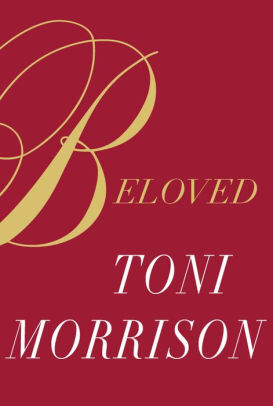The Justification of Characters in Beloved
Body
Moreover, the book is considered as one of the most prominent in the American literature from 1981. The novel won the Pulitzer Prize for Fiction in 1988 and, after reading the novel, I have noticed evident reasons for it. Although the author focuses on the theme of slavery, human relationships, the inner psychological state of a person, and the major conflict are depicted from the perspective of the notion of crime. Murder, which is biggest sin of humanity, is in the center of the plot and serves as a joining point between two timelines and events, which happen thereafter. On the one hand, the mother, Sethe, faces people’s cruelty in the conditions of slavery, but, on the other hand, she feels strong maternal passion towards her children. The coincidence of these two factors create her unwillingness to see her children suffering under control of “white masters” and forces her to the attempt of killing her children rather than return with them to the previous way of life. The heroine succeeds only with one two-year-old child, but it leads to the tragic consequences for all the family members for the next eighteen years. It remains a matter of personal attitude whether murder can be justified considering brutality of the surrounding world and sincere belief that certain life conditions are worse than death. However, the vivid description of horror, which was filling the black people’s lives, explains the roots of despair that could lead even to murder. The novel Beloved by Toni Morrison confirms that death is better than dreadful life and therefore justifies Sethe’s decision to kill her infant daughter in order to free her from life tortures as well as to deprive her of slavery and discrimination by white masters.
The decision of Sethe was morally justified as it was the manifestation of her deep love and freedom, which she wanted to grant to her daughter. At first sight, such an attitude towards murder sounds disastrous. However, the close analysis of Sethe’s life proves that it was not life but torturous existence. The first moment when the heroine faces her inner conflict happens when she hears the conversation between the teacher and his students. Their purpose is to study the black people with an aim to distinguish their human and animal characteristics. The following discussion opened Sethe’s eyes on the perception of African-Americans by the whites . She understood that white people did not perceive their black slaves as human beings and even assumed that they were the developed form of the animal. Later, in her conversation with Paul D, Sethe says: “I couldn't let all that go back to where it was, and I couldn't let her nor any of them live under schoolteacher” (Morrison 92). The inner conflict only developed and was completed by Sethe, when she was heavily beaten and when her milk was taken. Her back was severely damaged, and scars left no clear part on it. This event has fortified her anger and desire not to lead such a life.
The desire to deprive her daughter of slavery and racial discrimination, which she has experienced in her life, was another reason that made the main heroine kill her daughter and which makes this life choice rational. Slavery proved to be one of the worst experiences, which black people endured throughout history. They were sold and treated as cattle, and Sethe simply did not want her child to have such fate. Margaret Atwood discussed the issue of slavery in her book critique “Jaunted by Their Nightmares,” which has been published in The New York Times, and she pointed out one essential thing:
“Through the different voices and memories of the book, including that of Sethe's mother, a survivor of the infamous slave-ship crossing, we experience American slavery as it was lived by those who were its objects of exchange, both at its best ? which wasn't very good ? and at its worst, which was as bad as can be imagined” (Artwood).
This quote confirms that slavery was one of the worst historical disasters experienced in the American history. Regarding the novel, one should admit that the disappearance of Sethe’s husband strengthened her belief that she was the only person to take care of her children. Sethe truly loved her children and understood that she was responsible for their lives. In 1870s, the black mother was treated as animal, as the child was taken from her and nobody paid attention to her inner psychological sufferings and maternal pain. Nothing could alter the attitude of the white people towards the black slaves, and Sethe understood it when she saw the schoolteacher coming to the mother’s-law house, where she and her children experienced 28 days of freedom. As it is written in the book:
“The more colored people spent their strength trying to convince them how gentle they were, how clever and loving, how human, the more they used themselves up to persuade whites of something Negroes believed could not be questioned, the deeper and more tangled the jungle grew inside” (Morrison 113).
At that moment, Sethe experienced the feeling of desperateness., and her deeds resulted from the psychological stress. She simply could not believe that things will improve with the course of time and did not want her tiny daughter to be beaten, raped, and tortured by the white master. The life posed a rhetorical question: “Freedom or death?” and Sethe chose the latter.
The third argument, which could be drawn in favor of the decision, is her desire not to be separated from her tiny daughter. She was a loving mother, and her children meant everything for her. She understood that her master would take her children from her. Her decision could be perceived as the act of maternal love. She decided that her daughter could die and come to heaven, and she will always remain with her. Such an explanation of that deed is logical, and it partially explains the actions of the woman. She wanted better life for her children, and for that reason she escaped and went to Cincinnati. However, when she understood that they would return to the earthly hell where they lived before, she decided to give her child a chance for better fate on heaven. She understood that if she did not kill her daughter, the white master would do it, but in a much more violent and cruel way. Researcher Bloom confirms this idea in his work, where he states, “Sethe’s actions make sense as a form of resistance against the slave master’s claim” (157).
While expressing personal viewpoint, it should be stated that the actions of the main heroine are justified. They were caused by her inner morality and the desire to keep her children away from suffering which they could experience as slaves. Despite Sethe’s disastrousness of choice, it was her inner manifestation of maternal feelings. She was ruled by the principles of beneficence. Sathe considered that death was simply a way to avoid the tortures, which she has endured. Analyzing the situation from Sethe’s viewpoint and experience, it is obvious that her deed was truly morally and rationally justified. She chose peaceful death to the life full of misery and persecution.
In conclusionof this movie critique essay, in the situation that was depicted in the novel Beloved, murder was morally justifiable. Sethe committed it in order to safe her daughter from severe life tortures, which she could endure as a slave. She wanted her daughter a better fate. This novel helps readers to face the dramatic events full of personal and global conflicts, shocking details of reality happening in the past, and unbelievable world of ghosts. The analysis of life conditions of the main heroine proves that, in particular cases, immortal freedom is better than mundane life full of sufferings, pain, and discriminatory treatment.









Comments